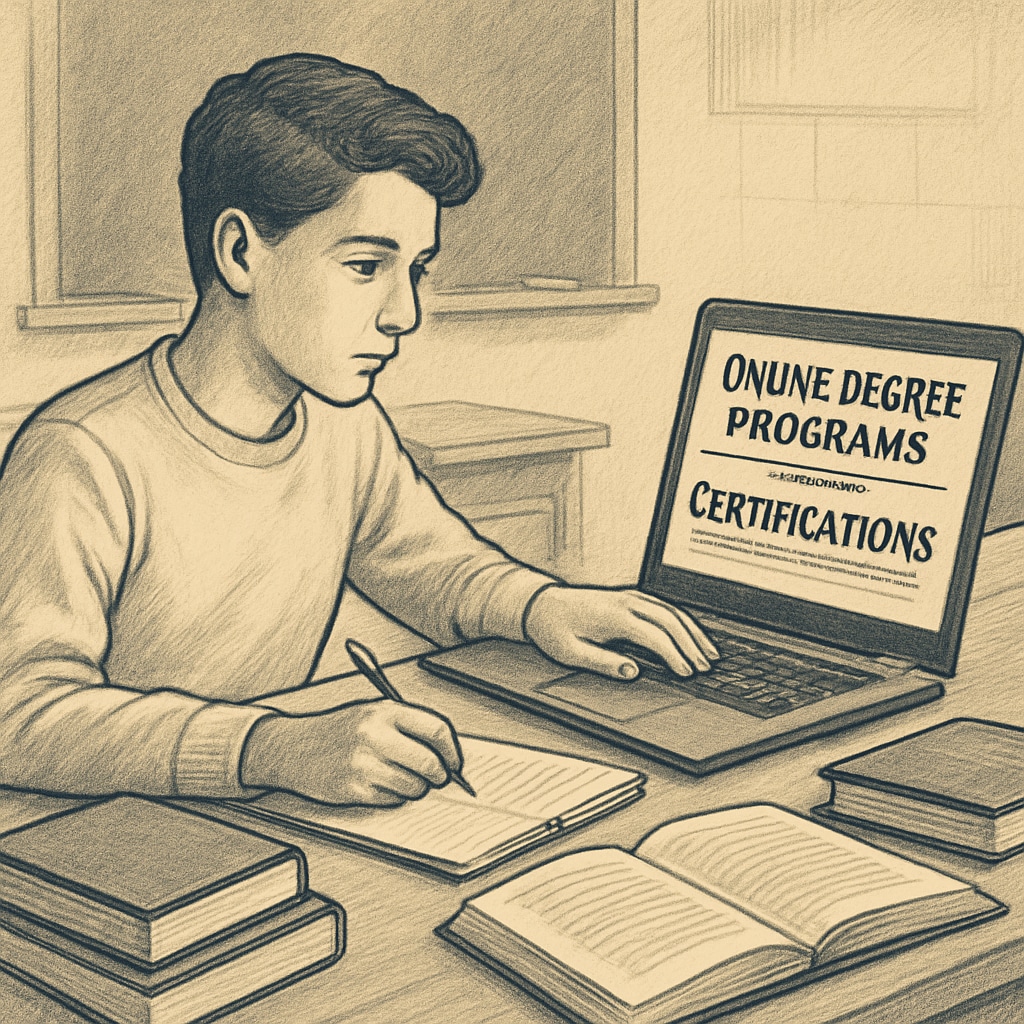In the evolving landscape of education, the concept of earning an additional qualification or dual degree has gained significant traction. For fields like mechanical engineering, students are increasingly looking towards online degrees and additional certifications to enhance their career prospects. But should this mindset of multi-disciplinary planning be extended to K12 students, or is it too early to adopt such strategies? This article delves into the advantages and disadvantages of early academic planning and offers balanced strategies for parents and educators.
Why Dual Degrees and Certifications are Popular in Higher Education
Dual degrees and certifications have become popular options for college students, especially in competitive fields like mechanical engineering. These additional qualifications provide students with a diverse skill set, making them more attractive to employers. With the rise of online degrees, students can also pursue these opportunities flexibly, studying at their own pace while balancing other responsibilities. Moreover, professional certifications further validate their expertise, offering a competitive edge in the job market.
For example, a mechanical engineering student might complement their primary degree with an online certification in data analytics or project management. Such a combination can open doors to specialized roles, such as operations management or systems engineering. However, while this approach works well in higher education, it raises the question of whether K12 students should also start planning for multi-disciplinary paths early.

The Pros of Early Multi-Disciplinary Planning in K12 Education
Encouraging K12 students to explore diverse academic interests has its merits. Here are a few benefits:
- Broader Skill Development: Early exposure to subjects outside the traditional curriculum can help students develop a well-rounded skill set.
- Career Awareness: Introducing students to fields like mechanical engineering early on can aid in career clarity and reduce indecision later in life.
- Adaptability: Multi-disciplinary planning equips students with the ability to adapt to changing educational or professional landscapes.
For instance, organizations like the STEM education initiative promote early engagement in science, technology, engineering, and math, helping students identify their interests and strengths at a young age.
Potential Challenges of Early Academic Specialization
While the idea of early planning is appealing, it is not without its challenges:
- Pressure and Burnout: K12 students already face academic demands, and additional planning might overwhelm them.
- Lack of Maturity: Children in K12 may not have the emotional or intellectual maturity to make long-term career decisions.
- Risk of Narrow Focus: Over-specialization can limit creativity and exploration, essential aspects of childhood development.
According to Britannica, the early years of education should prioritize holistic growth, including physical, emotional, and social development, alongside academics.

Finding the Right Balance for K12 Students
So, how can educators and parents encourage academic growth without imposing undue pressure? Here are some strategies:
- Focus on Exploration: Introduce students to a broad range of subjects and activities without forcing specialization.
- Encourage Passion Projects: Let students pursue interests outside their school curriculum, such as coding, robotics, or creative writing.
- Leverage Technology: Use online tools and short courses to supplement learning without overwhelming students.
By striking a balance, students can enjoy the benefits of multi-disciplinary exposure without compromising their overall well-being. For example, a student interested in mechanical engineering might participate in a summer robotics program rather than enrolling in a rigorous online certification course at an early age.
Conclusion: Is Early Planning Worth It?
While the pursuit of dual degrees, online certifications, and diverse skill sets is invaluable in higher education, the same approach may not be suitable for K12 students. The key lies in fostering a curiosity-driven approach to learning, rather than imposing rigid career paths. Early planning can be beneficial when done with flexibility and without pressure, ensuring that students grow into well-rounded individuals ready to face the challenges of higher education and beyond.
Ultimately, the goal should not be to produce mechanical engineers or data scientists in their teens, but rather to nurture learners who are adaptable, creative, and prepared for the future.
Readability guidance: Short paragraphs and lists highlight key points clearly. The article balances pros and cons, using transition words like “however,” “in addition,” and “as a result” to maintain a smooth flow. Passive voice is minimal, and long sentences are limited to ensure accessibility.


